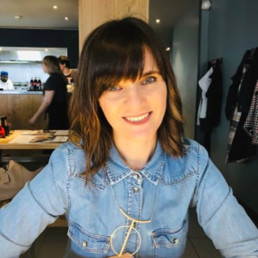
Written by Annemarie Williams
Executive Head Teacher of Humberstone Infant Academy and Humberstone Junior Academy, where she has been Headteacher / Executive Head Teacher for 12 years.
I’m going to start this with a disclaimer. Because I feel like right now there is a lot of highly expressed emotions and publicity around the issues I’m writing about. Many people will have an opinion and this is mine.
Last weekend I was proud to be part of the online celebrations for International Women’s Day – last night I lit a candle for the horrific crimes against Sarah Everard and cried. I woke up to some of the most distressing and brutal photographs from the vigil that was held in her name. In between this, I watched a woman admit to an international TV audience that she felt so overwhelmed by her treatment in the media and by an institution, that she had thought about taking her own life. I have spoken to friends, family, colleagues and the overwhelming feelings are the same. Women are expressing their sadness and anger and the sense of powerlessness that they have felt in so many of these situations. The lack of power in preventing crimes like these, the lack of power in challenging the institutions responsible and the lack of power in affecting meaningful change.
I’m a mother, a daughter, a niece, an auntie, a best friend, a leader and proud to have been a regional leader within the #WomenEd community for 5 years. I’ve spoken to women of all ages and stages in life and each and everyone of them has a story about being followed home in the dark, shouted at in the street, groped in nightclubs, patronised and interrupted at work and called names on social media because of their body shape. It is heartbreaking.
I do not attempt to speak for all women but it seems to me that many women who were taught to take a seat at the table…now realise that they will always be sitting on the chair with shorter legs because equality and equity are not the same thing. It’s not enough to have a seat at the table if you don’t feel that your voice is heard. And really to be genuinely listened to and heard is what many women are asking for. In their statements for the media today, the spokesperson for Reclaim the Streets spoke repeatedly about women wanting to be heard and about the need for constructive discussion and dialogue.
Brene Brown speaks of the difference between “power over” and “power with” and this is the bones of what many women experience on a daily basis. “Power with” can only happen if the people at the table acknowledge their position of privilege and actively and deliberately seek to change the status quo. In this case that means men doing more to address the issues at hand here. In my life I am fortunate to have some truly wonderful, brilliant, enlightened and courageous men who have absolutely and sensitively tried to conduct themselves like the brothers and allies women need. But there still feels like there is more to do. I know that these are the men who would intervene in the case of a woman being harassed in the street, or call out an inappropriate joke in the office or challenge the use of sexist language in the locker room. But there’s more subtle forces at work than this. It’s more than calling out bad behaviour – we need men to actively demand better behaviour and not because they are husbands, fathers and brothers, but because it is the right thing to do if we believe in a fair and equal society.
This is challenging and requires an active and deliberate awareness. It is almost asking too much – to feel the day to day experience of being a woman. The theme for International Women’s Day this year is #choosetochallenge. Women all over the world are providing that challenge but it is not enough if men do not do the same. So what could this proactive stance look and sound like?
- Questioning the diversity of a panel that you are asked to speak on
- Asking what the diversity and inclusion policy is where you work
- Offering to give up your space at an event for someone who would benefit from the opportunity
- Initiating open conversations with women about their experiences of everyday sexism and being prepared for the fact that this might feel uncomfortable
- Insisting that recruitment is transparent and that there are no secret backdoors to get that seat at the table
- Providing opportunities for women to have open discussion, forum groups and other ways of giving anonymous feedback
If we want things to change then there needs to be an acknowledgement that this is an active and proactive process and if you are not willing to help find the solution, then you are probably part of the problem.

